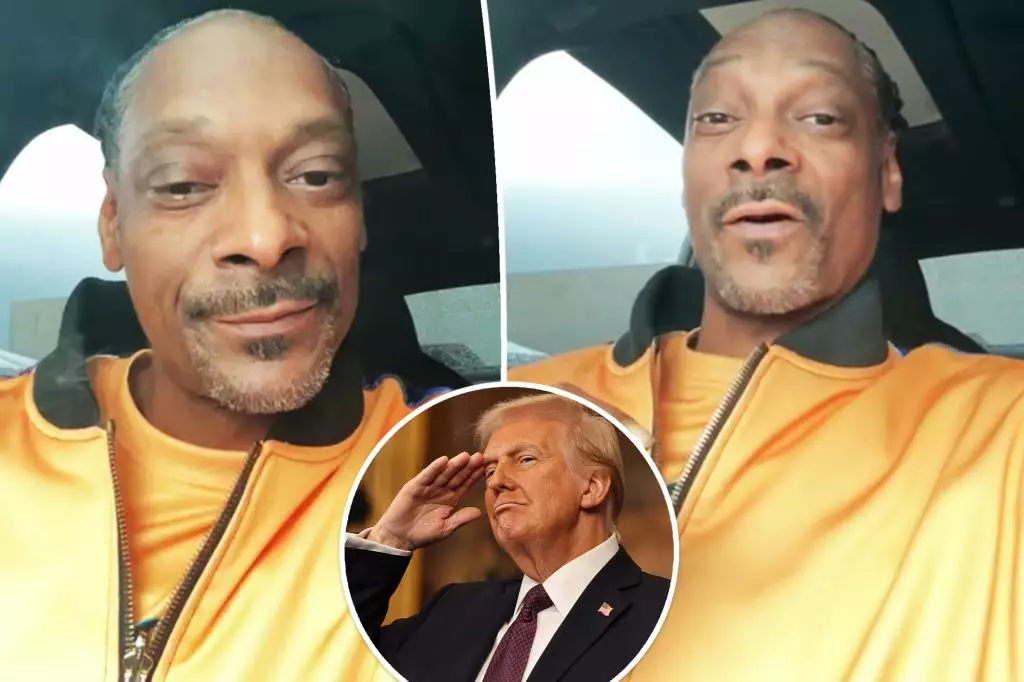Snoop Dogg, a prominent figure in the music industry, recently faced considerable backlash for performing at President Trump’s inaugural Crypto Ball. The event, held in January, prompted fierce reactions from fans and critics alike, particularly given Snoop’s previously outspoken views against Trump and his administration. Despite the criticism, Snoop took to social media to express his thoughts and feelings, asserting his identity and resilience in the face of negativity.
In a candid Instagram video, Snoop Dogg responded to the hate directed towards him. Sitting in his car, enveloped in gospel music and a cloud of smoke, Snoop conveyed a powerful message: “For all the hate, I’m going to answer with love.” This statement encapsulates his approach—a rejection of the vitriol with an emphasis on positivity and self-love. By explicitly urging critics to “get your life right,” he emphasized a divide between his self-assuredness and the detracting voices from his past fans. His assertion that he remains “100% black” signals a strong sense of pride in his heritage amid the outcry.
Strength in Collective Upliftment
Snoop’s remarks extended beyond mere self-defense; they transformed into a call for unity within his community. He stated, “We gotta learn how to pick each other up rather than put each other down,” spotlighting the prevalent tendency in society to disparage rather than support. Snoop resonated deeply with his audience, laying bare the internal struggles that many in the African American community face. His narrative of resilience—“I’m a strong black man. You can’t tear me down”—sought to empower those who may also feel the weight of society’s judgment.
Despite the love from some quarters, the backlash resulted in tangible consequences for Snoop’s social media presence. His Instagram following dropped dramatically by over 570,000 followers post-performance, alongside a notable decline on X as well. This mass exodus leads to a critical discussion about the implications of celebrity actions and how fans perceive the authenticity and alignment of their favorites’ values. Snoop’s experience reveals a common paradox in celebrity culture: the dichotomy between public persona and personal agency.
Interestingly, this isn’t the first time Snoop has voiced dissent against Trump. In previous years, he had referred to Trump supporters in disparaging terms, which makes his change in perspective especially fascinating. His previous condemnation turned unexpectedly into praise, especially after Trump’s decision to pardon iconic figures linked to Snoop’s career. “Donald Trump? He ain’t done nothing wrong to me,” reflected a newfound diplomacy that some might view as inconsistency, while others might see it as pragmatic adaptability.
Snoop Dogg’s situation underscores the complexities of fame, identity, and political allegiance. His decision to perform at a Trump event, despite past criticism, highlights the nuanced relationship between celebrities and their political beliefs. While Snoop views his actions as a demonstration of personal autonomy and love, the response from the public indicates a critical rift between artist and fan expectations. As the landscape of celebrity culture continues to shift, Snoop’s experiences will remain a focal point for exploring the intersections of art, identity, and politics.

